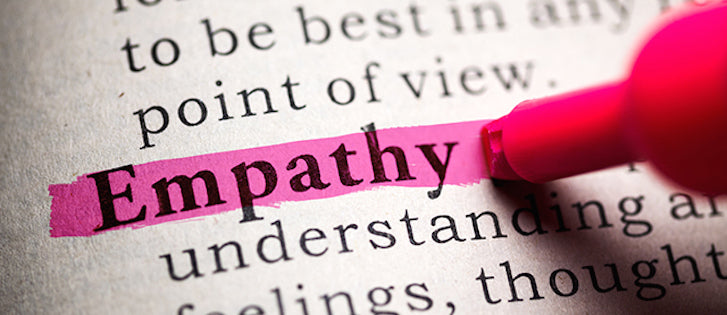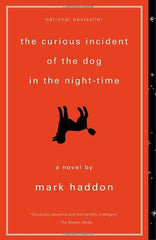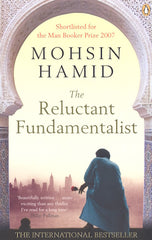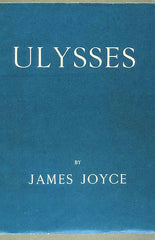Many designers believe that reading fiction is a waste of time. When staying up-to-date on industry trends is necessary in order to get ahead, reading Huckleberry Finn instead of the latest Smashing Magazine article seems like a poor use of precious daylight hours. The kind of straightforward and simple facts found in nonfiction are much more easily understood and therefore efficiently consumed. Fiction, on the other hand, is perceived to offer an escape rather than actionable advice.
But despite the belief that fiction doesn’t offer anything of value, there are actually quite a few reasons why you might want to pick up a book and lose yourself in an invented world every once in awhile. Here are four reasons why reading fiction inspires great design thinking.
You might also like: 10 Essential Books For Web Designer
It develops empathy

The ability to create a great user experience is one of the most valuable skills a designer can possess. But what makes a great UX designer? Above all else, good UX designers have empathy for other people. They develop the best solutions for a problem not because they understand the problem, but because they understand the people behind it. An empathetic designer looks at their design through the eyes of the end user, and then optimizes their framework for that person. Empathetic design is what makes user interactions with technology a more human experience.
One of the most important benefits of reading fiction is that it makes us more empathetic. As researchers at York University have shown, reading fiction activates neuronal pathways in the brain which allow people to better understand real human emotion. When test subjects were asked to guess the emotional state of a person from a photograph of that person’s eyes, the candidates who had read more fiction scored higher than those who had read fewer novels. Simply put, reading fiction improves our ability to read other people. When we put ourselves in an imaginary character’s shoes, we are actually training our brain to be able to do the same thing in real life. Fiction develops the kind of emotional intelligence needed to understand human desires or frustrations.
Of course, developing an empathetic mind by reading fiction doesn’t just apply to UX design — it can help you with all aspects of your professional life. From colleagues, employees, or superiors, to clients or business partners, the ability to correctly gauge how someone is feeling and then respond in a correspondingly appropriate way will help you to maintain healthy and productive collaborative relationships.
It increases your creativity

As we’ve discussed in previous blog posts, “play” is an important part of creative thinking. In Simple Tricks to Increase Your Creativity, Rob Poynton argues that creative thinkers are also playful thinkers because playfulness “opens the door to new possibilities” and prevents us from “self-censoring our ideas.” Because creativity rarely works in a direct or linear way, creative solutions often emerge from doing something that seems completely unrelated to the problem you are trying to solve. As a result, playing is a great way to trigger the kind of unrelated activity necessary for inspiring creative thinking.
Fiction is particularly fertile ground for cognitive play because novels force us to step outside of ourselves and our everyday experience. While the insights of nonfiction often tend to apply directly to a specific problem we may be trying to solve, fiction creates a kind of ‘psychological distance’ that allows us to tackle a particular problem from a unique perspective. So instead of a cookie-cutter, run-of-the-mill approach, reading fiction gives your brain the space it needs to think in new and creative ways.
It will make you a better writer

You know that web design blog you’ve been meaning to start? What about that difficult email you need to send to a client? Or are you at a loss for words trying to write the right microcopy for a client’s website?
Being a better writer can help you accomplish a variety of daily tasks, and one of the best ways to become a better writer is to read more novels. Like anything else, writing is a skill that needs to be practiced, and reading attentively is great cross-training.
So why is fiction particularly useful in this case? It has to do with the different ways fiction writers and nonfiction writers use language. Since factual accuracy is valued more highly than aesthetics in nonfiction writing, the language of nonfiction tends to be utilitarian rather than expressive. And while this style of writing allows a writer to communicate simply and clearly, it often doesn’t explore the variety of creative ways in which language can be used to express subtle nuances in tone.
Fiction, by contrast, offers an entire costume trunk of styles, genres, syntax, and vocabulary for a reader to take out and try on. The best writers know when and how to use these tools to affect their readers emotions and direct them towards a particular response. So whether you want to write memorable blog posts that stick in your readers’ minds or create scintillating product descriptions that drive customers to click the buy button, the best way to hone your writing skills is to crack open a couple of great reads.
It’s great stress relief

Human beings are hardwired to tell stories. Narrative is the most natural way for us to organize the chaos of experience. Think about it: when someone asks you to tell them about your day, do you spew out every occurrence in no particular order? Of course not. You select a few key events from the multitude of things that happened to you, and then you organize them (often chronologically) in an order that makes sense. In other words, you tell a story. This unconscious mental process takes a split second, but it allows us to simultaneously understand our own experience and communicate that experience to another person.
Unfortunately, most of us spend our days swimming in an overwhelming amount of information. Whether we’re on our phones or computers or wearable tech (and often it’s all three at the same time), our brains are constantly bombarded by tweets, snaps, status updates, calendar reminders, email notifications, news stories, blog posts, long-form articles, subreddits — all of which continually interrupt/disrupt our experience of reality. And while technology allows us to access an unparalleled amount of information, our 50,000 year old homo sapien brains haven’t quite evolved quick enough to be able to process it all.
In contrast, novels can bring a calming and healthy dose of narrative order to the disorder of modern life. Not only does reading fiction allow your brain to focus intensely and exclusively on a single task (a rare thing in this day and age), but research conducted in 2009 at the University of Sussex shows that reading is the most effective way to overcome stress. The study measured stress levels by evaluating heart rate and muscle tension, and concluded that it took participants just six minutes to relax once they opened their books. Reading even beat out other common forms of stress relief such as going for a walk or listening to music. In other words, giving your cranium what it craves — a well-constructed, thoughtfully organized, story — allows you to organize your thoughts and recharge your brain.
So next time you pick up a book, consider flipping through a few pages of fiction. It’s not a waste of time; it’s just good business.
You might also like: 15 Unmissable Web Design Podcasts
Here are a few of my favourite fiction reads for developing empathy, inspiring creativity, improving your writing, and reducing stress:
The Curious Incident of the Dog in the Night-Time by Mark Haddon

If you want to know what it feels like to look at the world through another person’s eyes, then The Curious Incident of the Dog in the Night Time is a must-read. Told from the point-of-view of a 15-year old boy named Christopher, the novel reveals how Christopher — who is highly autistic — perceives the world around him. Funny, quirky, and remarkably refreshing, The Curious Incident of the Dog in the Night-Time is a great way to see the world in a surprising and revealing way.
The Reluctant Fundamentalist by Mohsin Hamid

Another good read if you want to develop your empathy skills, The Reluctant Fundamentalist challenges us to overcome the kind of prejudices or biases that often prevent us from recognizing the humanity of our enemies. Set in a cafe in Lahore Pakistan just after 9/11, the novel describes a meeting between an American tourist and Pakistani named Changez, who tells the American about his time living in America, his love for an American woman, and his eventual abandonment of both after the terrorists attacks. The novel’s conclusion is ambiguous as to whether Changez is in collusion with the cafe waiter to kill the American, or whether the American is a CIA spy sent to kill Changez, but altogether the novel is a chilling and thought-provoking read.
The Amazing Adventures of Kavalier and Clay by Michael Chabon

This book follows the life story of two Jewish artists — a Czech artist named Joe Kavalier and a Brooklyn-born writer named Sam Clay — around the time of the Second World War. Although fictional, the novel describes how the two men become the authors of a celebrated comic series during the “Golden Age” of the American comics history. Not only is the writing in this book absolutely stunning, but The Amazing Adventures of Kavalier and Clay is a must-read for those who are interested in the creative life.
Life of Pi by Yann Martel

A personal favourite for inspiring out-of-the-box thinking, Life of Pi is a marvellous fantasy adventure novel about a young Indian boy named Pi who is shipwrecked and stranded on a lifeboat with a Bengal tiger. Colourful, imaginative, and at times otherworldly, Life of Pi challenges us to use our imaginations to believe the unbelievable.
Ulysses by James Joyce

Weighing in at a lofty 700 pages in length, Ulysses is not for the faint-hearted reader. The book follows the protagonist — the unassuming and unremarkable Leopold Bloom — throughout an entire day in his life. And although the plot seems simple, Joyce tells Bloom’s story using almost every single literary technique out there. So if you decide to tackle this hefty tome, pay attention to the language rather than the story and I promise you’ll walk away with a few new writing tricks for your toolbox.
What are your favourite works of fiction? Tell us in the comments below!
Read more
- Back to School Gifts for Programmers and Developers
- Friday Inspiration: 9 Visually Compelling Ways to Feature Products
- Tips for Offering Product Unboxing Consultation Services to Your Clients
- 10 Sustainable Holiday Gifts For Designers and Developers in 2018
- 8 Conferences to Save Your New Year's Resolution
- 15 App Developers and Programmers You Should be Following on Twitter
- Shopify's Web Design and Development Blog in Review: The Top 10 Articles of 2017

